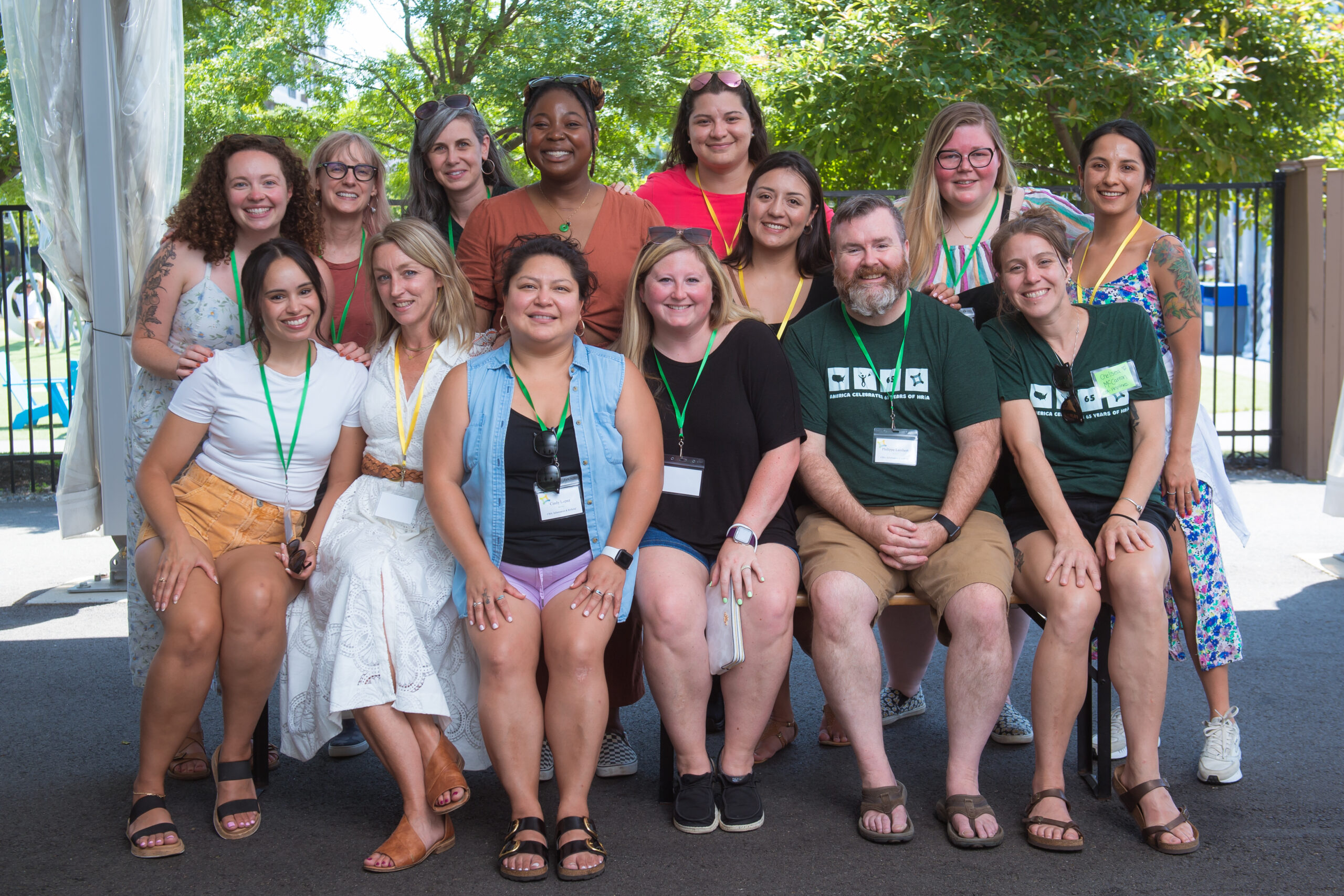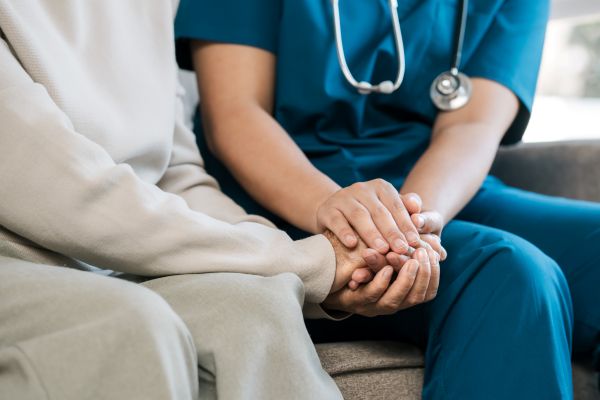Updated February 16, 2024.
The pandemic has exacerbated the growing behavioral health crisis in the U.S, with disproportionate impact on communities of color and young people. Those in need of services deserve and require empathy, advocacy, and support. When someone needs services for substance use and problem gambling—that’s where the Helplines come in.
What is a Helpline?
A helpline is a statewide resource for finding harm reduction, treatment, and recovery services for substance use, problem gambling, and other behavioral health issues. Like 211 or 311, Helplines are a public service available to all residents in an area regardless of their circumstances. This confidential resource connects consumers (meaning anyone who reaches out to us by phone, chat, or text) to caring, trained specialists who help assess the consumer’s needs and navigate the complexities of the treatment, recovery, and harm reduction system.
Unlike a crisis hotline that provides emergency counseling, helplines provide information and connect consumers with service providers. While helplines don’t solve underlying issues of access, such as lack of beds, inadequate services, or lack of insurance coverage , they ensure that people in the greatest need always have someone on their side, supporting them wherever they are on their path. With over 25 years of experience and a portfolio of five statewide helplines, HRiA has developed a unique, holistic, and scalable approach to screening and information services.
Helplines create connection
Helplines are central to HRiA’s behavioral health services and the broader harm reduction infrastructure. They are often a person’s first interaction with the treatment continuum, but they can also be a bridge service, providing connection and support at any point in a person’s journey to recovery. Helpline Screening and Information Specialists, or SIS, provide a critical link between a person in need and available services.
Recognizing the gravity of this responsibility, HRiA’s approach to helpline services is grounded in empathy and honors the lived experiences of consumers. Our team of specialists, many of whom are in recovery and/or have loved ones with addiction, are highly trained and have the skills, knowledge, and expertise to help address and reduce barriers to accessing services and help to motivate the consumer to follow through in seeking the services that are right for them. We provide access to everyone through multi-lingual specialists, on-call interpreters, translation, and services for those who are deaf/hard of hearing or visually impaired.
To ensure appropriate referrals, we maintain a sophisticated database of service providers through the state, including detailed and up-to-date information on their services, hours of operation, specialties, insurance accepted, and other key information that can help consumers assess their options. We also support self-advocacy by educating consumers on their rights in the systems they are trying to access. Depending on the state of residency, helpline specialists can be contacted by phone, chat, or text, with some available 24/7. In 2023, HRiA’s helpline team received over 57,000 calls, chats, and texts.
Helplines are an essential social service
HRiA’s Helplines are part of an essential social service structure, including 411, 911, and the recent shift of the National Suicide Prevention Lifeline to the 3-digit Suicide and Crisis Lifeline accessed at 988. We have coordinated with the local providers for 988 across states to ensure they can direct consumers to the appropriate Helpline for substance use and problem gambling needs. With crisis line services more accessible than ever, we work with the state to increase awareness of Helpline services while simultaneously building out a strong, reliable technical infrastructure that can easily handle any increases in call volume, ensuring that Helpline access is always available.
What happens when someone contacts an HRiA Helpline
Whether a consumer is seeking help for themselves or a loved one, specialists guide them through a process to best match them with appropriate services. The four elements to our comprehensive services are: Screening, Listening, Connecting, and Following Up.
- In Screening, a specialist performs a brief assessment to determine the consumer’s concern(s). In some states, we screen for both substance use and process disorders like problem gambling. The screening is conversational, guided by (but not beholden to) a script to ensure that every Helpline interaction is both thorough and tailored to the consumer’s needs.
- From the start of the call, specialists engage in active Listening, employing strategies like motivational interviewing to elicit important details about the consumer and what kind of help they are seeking.
- Once they understand the consumer’s needs, a specialist will identify appropriate services through our sophisticated service provider database, offering the consumer a menu of options, and then Connecting the consumer to the appropriate services either through a direct “warm transfer” or a list of options provided verbally or by email.
- Finally, specialists will ask the consumer if they would like a Follow-up call from one of our clinicians on staff to ensure that they received the services they need and to provide additional support on their treatment journey.
We work hard to remove barriers to connecting with the helpline, but it still takes incredible courage to make a call and ask for help. Below, you can listen to some feedback received by our Helplines, or visit our websites to hear stories from folks with lived experience.
You can hear stories from people in recovery and the folks that support them through the links below.
- Illinois Helpline: Stories of Help
- Illinois Helpline: Harm Reduction
- Massachusetts Helpline: Stories of Hope
Helplines and other relevant projects at HRiA
Helpline services have been part of the fabric of HRiA for almost half of our 65-year history. We now operate substance use helplines in four states, with two also addressing problem gambling. We also provide many other complementary initiatives designed to improve access to services and reduce the negative impact of substance use and problem gambling. Please visit our websites for more information:
- MA Substance Use Helpline
- MA Problem Gambling Helpline
- IL Substance Use Helpline
- IL Problem Gambling Helpline
- VT Helplink
- Oregon Hopeline
- HRiA’s Behavioral Health & Racial Equity (BeHERE) Initiative
The HRiA Helplines Team
The HRiA Helplines Team is growing. If you are interested in applying or sharing opportunities with you network, visit our Careers page for more information.

